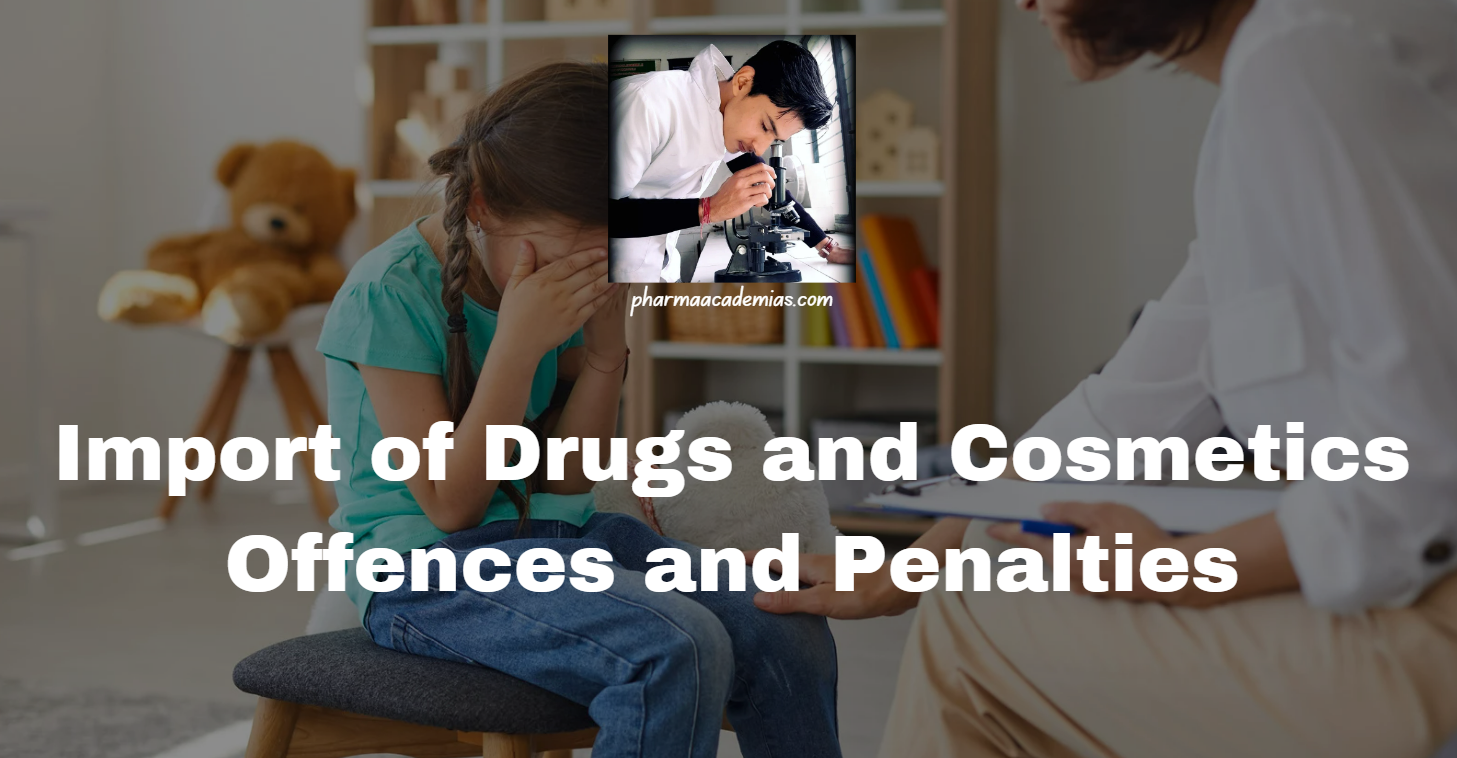The import of drugs and cosmetics is governed by strict regulations to ensure public safety and maintain the integrity of healthcare products. Violations of these regulations can result in serious offences and severe penalties. Below is a detailed overview of the offences related to the import of drugs and cosmetics and the corresponding penalties.
Regulatory Framework for Import of Drugs and Cosmetics
The regulatory framework for the import of drugs and cosmetics is established by national and international bodies to ensure that only safe, effective, and high-quality products reach consumers. Key regulatory bodies include:
United States: Food and Drug Administration (FDA)
European Union: European Medicines Agency (EMA)
India: Central Drugs Standard Control Organization (CDSCO)
Offences Related to the Import of Drugs and Cosmetics
1. Importing Adulterated Drugs or Cosmetics:
Importing products that are contaminated, prepared under unsanitary conditions, or do not meet the required standards of quality and purity.
Adulterated products may pose significant health risks to consumers.
2. Importing Misbranded Drugs or Cosmetics:
Importing products with false or misleading labeling.
Failing to provide adequate directions for use or required warnings on the product labeling.
3. Importing Unapproved New Drugs:
Importing drugs that have not received approval from the relevant regulatory authority.
This includes experimental or investigational drugs that have not been authorized for import.
4. Importing Counterfeit Drugs or Cosmetics:
Importing products that are fraudulently mislabeled with respect to their identity or source.
Counterfeit products are often imitations of brand-name drugs or cosmetics intended to deceive consumers.
5. Importing Banned Drugs or Cosmetics:
Importing products that have been banned for safety reasons, such as those causing significant adverse effects or posing a risk to public health.
Examples include drugs with carcinogenic, teratogenic, or toxic properties, and cosmetics containing harmful substances like lead or mercury.
6. Importing Drugs or Cosmetics Without a License:
Importing products without obtaining the necessary import license or permit from the regulatory authority.
This includes failure to comply with the conditions of the issued license.
7. Importing Expired Drugs:
Importing drugs that are past their expiration date, rendering them unsafe for use.
Penalties for Offences
Penalties for offences related to the import of drugs and cosmetics can be severe and may include fines, imprisonment, and other legal actions. The specific penalties vary by country and the severity of the offence.
1. Fines: Monetary penalties can range from thousands to millions of dollars, depending on the nature and extent of the violation. Fines are imposed to deter future violations and to penalize non-compliant behavior.
2. Imprisonment: Offenders may face imprisonment for a specified period, which can range from a few months to several years. In cases of serious violations that result in significant harm to public health, the imprisonment terms can be more severe.
3. Seizure and Destruction of Products: Regulatory authorities have the power to seize and destroy adulterated, misbranded, unapproved, counterfeit, or banned products. This prevents the distribution of unsafe products to consumers.
4. Revocation of License: Import licenses or permits may be revoked or suspended for non-compliance with regulatory requirements. This prohibits the importer from conducting further import activities until compliance is achieved.
5. Civil and Criminal Liability: Offenders may face civil and criminal charges, leading to legal proceedings and additional penalties. Companies and individuals involved in violations may be subject to lawsuits and damage claims from affected parties.
6. Public Notification and Blacklisting: Regulatory authorities may publicly disclose the names of offending companies and individuals. Offenders may be blacklisted, preventing them from future import activities.
Case Examples
United States: The FDA enforces penalties under the Federal Food, Drug, and Cosmetic Act (FD&C Act). Violations can result in fines, imprisonment, and product seizures.
European Union: The EMA, along with national regulatory agencies, imposes penalties under the EU regulations. Offenders can face significant fines and criminal charges.
India: The CDSCO enforces penalties under the Drugs and Cosmetics Act, 1940. Penalties include fines, imprisonment, and cancellation of import licenses.
Conclusion
The import of drugs and cosmetics is subject to rigorous regulations to ensure the safety and efficacy of these products. Violations of these regulations constitute serious offences and are met with stringent penalties, including fines, imprisonment, and product seizures. Regulatory authorities play a critical role in monitoring compliance and taking action against offenders to protect public health and maintain the integrity of the healthcare system.
Check it: Click

